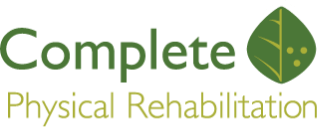How to Better Understand the Reason for Your Back Pain and Find Solutions for Pain Relief
Your spine is composed of parts known as “spinal discs,” or rubbery cushions that rest inside the tough casing of vertebrae. The balance that exists between these two layers of a spinal disc plays a crucial role in supporting the upper body and enabling a wide range of movement in all directions.
If you suspect or know that you have a herniated disc, that would mean there is an issue with one or more rubbery discs and your spinal bones, and that something in your body is painfully out of alignment.
Herniated discs can occur in any part of the spine, and can result in neck pain, back pain, or numbness and weakness in the arms and legs. However, some of these symptoms could have a wide variety of causes. So how can you tell for sure whether you have this specific problem? And if you do have a herniated disc, what can you do about it?
These questions don’t have to be as intimidating as they may seem. Fortunately, physical therapists can help patients living with back pain and herniated discs. If you are interested in learning more, contact us today!
What treatment options are available to me through physical therapy?
Physical therapy plays an extremely important role in the healing process of a herniated disc. Physical therapists can offer a variety of treatments to patients, including passive and active therapies.
Hot and cold therapy, transcutaneous electrical nerve stimulation (TENS), and deep tissue massage are examples of passive therapies provided by a physical therapist.
Heat therapy increases blood flow to a targeted location to promote healing, while cold therapy reduces the inflammation and muscle spasms that accompany herniated discs. TENS therapy lessens pain by triggering endorphins with small electric currents. And deep tissue massage stimulates an increase in oxygen for pain relief and healing.
Our physical therapists also will work with you to create an active treatment program for your herniated disc, focusing on improving flexibility, core stability, and muscle strength through exercises. These three components work together to strengthen the back muscles, enhance movement and flexibility, and form a stronger structural support system for the back.
How can I be sure that I have a herniated disc?
Simply put, your doctor can diagnose a herniated disc with a physical exam. A neurological exam can also be performed by your doctor to check muscular strength, reflexes, walking abilities, and the ability to feel touch. To determine the source of your pain, imaging tests may also be recommended.
A CT scan shows cross-sectional images of the spinal column and can help a doctor or technician locate a herniated disc. Images created by an MRI reveal the body’s internal structures and tissues and can also pinpoint the placement of a herniated disc.
In some cases, there aren’t any symptoms associated with a herniated disc. However, symptoms that usually appear, uncomfortable as they may be, can help reveal the nature of your problem. These symptoms include:
- An inability to walk more than a few steps without pain
- Pain, tingling, or loss of sensation in a limb (the result of a herniated disc pressing against nerves)
- Back pain that seems to increase when you stand up or sit down, sneeze, or cough
- Neck pain (seen with cervical discs)
- Pain or discomfort that began after a period of weight gain (since obesity is a risk factor for disc issues)
- Pain or discomfort that appeared closely after an accident, extreme twisting of the neck or back, or an attempt to lift a heavy object
If your symptoms significantly improve after a massage, or heat/cold therapies, it is more likely that you have a strained muscle or tendon than a herniated disc.
Ultimately, medical imaging is the most accurate way to confirm the existence of a herniated disc. X-rays can reveal the abnormal shape of a herniated disc and determine if the herniation is pinching a nerve.
Risk factors and causes of herniated discs
With age, spinal discs become less flexible. Herniated discs are often caused by this part of the aging process, known as disc degeneration.
Straining to lift heavy objects without proper technique or tools can also cause a herniated disc. Other risk factors include weight, which can cause more stress on spinal discs, and genetics, which can increase the likelihood that you develop a herniated disc.
Common indicators of a herniated disc
While most patients report herniated disc pain in the lower back, this condition can also occur in the cervical area. The type and severity of symptoms depend on where the herniated disc is located and if it is compressing a nerve.
It is common for only one side of the body to be affected by a herniated disc, with symptoms of pain, tingling, numbness, or weakness localized on the right or left side. If you have a herniated disc in your back, you will likely experience pain in the buttocks, thigh, and calf.
If the disc is located in the neck, you may feel pain in the arm and shoulder. Patients often describe the pain that results from a herniated disc as “sharp.”
It is important to remember that you can still have a herniated disc while displaying no symptoms.
Physical therapy can bring you the relief you’ve been searching for
Physical therapy is a great tool for herniated disc recovery and can help you avoid future spine injuries in general.
If you have any of the symptoms of a herniated disc, you should see a doctor for an accurate and reliable diagnosis. It is likely that your doctor will recommend physical therapy! Contact us today to schedule a consultation and start your journey towards a more comfortable and active life.
Sources:

Dr. Asha Pumarada is a licensed Physical Therapist and co-owner of Complete Physical Rehabilitation. With over 20+ years of treatment experience, she is a McKenzie Certified back pain specialist, an LSVT BIG certified specialist for Parkinson’s disease, and is one of the most sought after vestibular therapy specialists in Elizabeth and Jersey City, they specializing in the treatment of all dizziness, vertigo, and imbalance issues along with her husband, Dr. James Pumarada.

